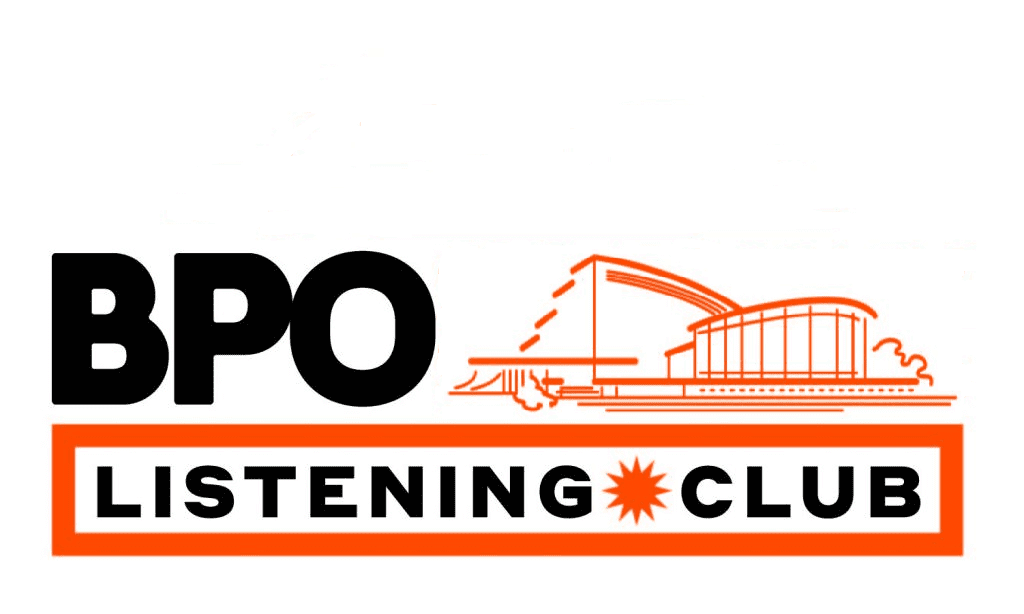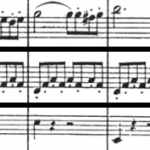
BACH Brandenburg Concerto No. 3
performed by the Netherlands Bach Society
STRAVINSKY Dumbarton Oaks
performed by the Budapest Dohnány Symphony Orchestra
BEETHOVEN Septet
performed by the Melbourne Symphony Orchestra
ROBERT MERFELD Suite for Solo Viola
performed by our very own BPO violist, Anya Shemetyeva!
Listening Guide #5
Jonathan Borden, host
Classical music has a branding problem. To prove my point, ask yourself – what’s the first thing that comes to mind when you think about the term “classical music”? If you had asked me when I was 16, I would have responded with powdered wigs, fancy dinner parties, that “is it over yet?” feeling, and music that would sound something like Bach or Mozart. Not exactly thrilling.
I couldn’t tell you why it’s called classical music, nor what a better name would be. What I can say for sure is that it’s an insufficient name for a genre that encompasses about 500 years worth of music (and counting!). Classical music is not monolithic. Within this “genre” exists a tremendous variety of musical styles. Listen to a few seconds of this and this – they both fall under the classical music umbrella, but sound nothing alike.
It would be unreasonable to expect someone whose only encounter with classical music was Mozart to know that his music is just a slice of the greater classical music pie. A genre that encompasses so many styles of music demands explanation. Conveniently, the music in this week’s concert spans a 300 year period, so it’s a great opportunity to get a bird’s eye view of the evolution of classical music. To help you hear the differences between each composer, I’ve given myself a special challenge: to reduce the stylistic characteristics of each piece to just a few bars of music. Let’s begin!
J.S. Bach: Brandenburg Concerto #3
In the beginning, there was nothing, and then God said “Let there be Baroque music”. Thus music was born, beginning a few hundred years ago. That’s it, that’s the tweet.
Ok, music has obviously existed for a long time, long before the musical era referred to as the Baroque, which was popular loosely around the time of J.S. Bach (1685-1750). You see, musical styles are kind of defined by the people who are the Big Deals of their era, and Bach was a Very Big Deal(™). So Bach = baroque. Got it?
What makes music from the baroque era sound baroque? Lots and lots of counterpoint. Like, counterpoint all up in your face. Every instrument is playing something that could be considered melodic; even bass lines, which in other styles are usually relegated to conveying simple, harmonic information, are intricate and very much involved. It looks and sounds like this:

It’s the intricacy that makes it great; it’s like complicated machinery working perfectly together. When listening to baroque music, I take pleasure in picking apart the independent musical ideas and seeing how they fit in the broader picture.
Beethoven: Septet, op. 20
Yeah, yeah, we call it classical music and there’s a classical era (1750-1820ish) within the genre. It’s confusing. Like I said earlier, I don’t make the rules.
Music from the classical era and the baroque might sound similar to you, and you aren’t wrong for hearing that. Both styles of music use the same harmonic language. What does that mean? Well, you know those scales that you’re supposed to practice, the major scales? Yeah, those ones. Think of that as a harmonic language, and that’s what is used in both styles of music, so that’s why they sound similar. Where they differ is how they use that scale.
I’m heavily oversimplifying here, but one easy way to understand the difference between the baroque and classical styles is through complexity. The best way to understand this is to listen to this segment from the viola part of the Septet:

This is a really simple musical idea – it’s not very melodic, and it serves as a basic accompaniment to the melody. This helps draw your focus to the melody in the violin, and this separation of roles is a hallmark of the classical era. Did I ever mention that I’m oversimplifying?